Dr. Gary G. Sackett Awards
After a B.S. and M.S. in Mathematics at MSU in the early 1960s, Dr. Sackett completed
a Ph.D. in Applied Mathematics at the University of Southern California. He held
positions at the University of New Mexico and Idaho State University mathematics departments
and the Idaho National Laboratory before turning to the law. He is now a semi-retired
lawyer in Salt Lake City, with a continuing interest in supporting applied mathematics
students at his alma mater.
Thanks to the generosity of Dr. Sackett, the Department of Mathematical Sciences is able to provide support for students pursuing a PhD degree with a research program in Applied Mathematics. The Gary G. Sackett Scholarships for Academic Excellence in Applied Mathematics were established in 2014, and they are awarded to graduate students pursuing a PhD in mathematics with the research component in the area of Applied Mathematics. The Gary G. Sackett Travel Awards in Applied Mathematics support graduate students in Applied Mathematics by providing travel funds for those who aim to disseminate the results of their dissertation research to their academic peers at national conferences. The travel awards may also support graduate student travel to special summer workshops and institutes that help provide short-term intensive training in the foundational concepts of their research topic from leading experts in their respective fields. Information about the various scholarship recipients is given below.
2014-2015 Scholarship Recipients
2014-2015 Travel Award Recipients
2021 Scholarship Recipients
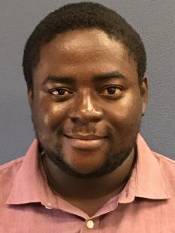
Emmanuel Barton Odro
At the university level and in STEM fields students’ dropout in part due to not being able to pass mathematics courses, particularly Calculus I (Roble, 2017). According to the Mathematics Association of America, Calculus I occupies a unique position as a gateway course to STEM degrees (2015). Almost all STEM majors need to take at least the first course in calculus. To many of these students, this first course in the calculus sequence is either an obstacle or a discouragement to continue in their degree programs (Ellis et al., 2016; Bressoud, Carlson, Mesa & Rasmussen, 2013). Emmanuel’s study analyzes student engagement experiences and gendered difference in an online Calculus I. Through the Sackett Scholarship, Emmanuel will be able to analyze the engagement experiences and gender difference in the calculus classroom as a way to explain students’ learning and retention in Calculus thereby STEM fields.
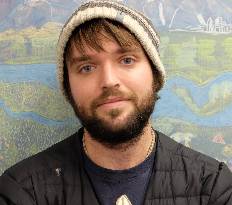
Elijah Meyer
There is a shift in incorporating graduate students as primary instructors, but the incorporation of graduate student instructors (GSIs) has created questions on how GSIs can be better supported for teaching. Elijah's research explores this phenomenon through a longitudinal cross-case analysis. This research identifies challenges and key hurdles GSIs may face when experiencing active learning, as well as narrating how two GSIs’ knowledge, beliefs, and use of active learning evolve over time. Additionally, Elijah’s research explores another layer in understanding GSIs’ use of active learning – the reasons why they use such techniques. Using a psychological lens, this additional research investigates why statistics GSIs use active learning through understanding their motivations to do so. This research’s primary purpose is to develop a research instrument to examine different types of motivation GSIs may have toward using commonly recommended active learning techniques in statistics classes. Through the Gary G. Sackell Scholarship, Elijah is able to continue data collection for revising the instrument in development.
2019 Scholarship Recipients
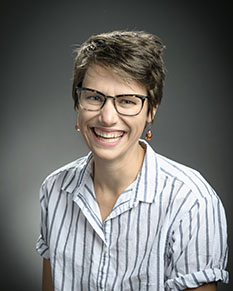
Allison Theobold
Allison’s research investigates the computing skills necessary for graduate students in the biological and environmental sciences to implement statistics for research in their fields. The volume and variety of data collected by researchers in the biological sciences for statistical analysis continues to increase at a rapid pace, but the computational preparation of graduate students lags behind. Allison's research identifies the key skills these graduate students are using in their research to implement statistics and uses this knowledge to develop a suite of statistical computing workshops. These workshops aid in alleviating the computational burden these students face and provide campus-wide resources for incorporating data science into the classroom. Through the Gary G. Sackett Fellowship, Allison was able to continue her work on her Ph.D. dissertation. In the summer of 2019, Allison was able to prepare a manuscript, detailing the development and implementation of the suite of workshops, for submission in the Journal of Statistics Education.
2019 Travel Recipients

Elijah Meyer
I attended and presented both an invited poster session and an interactive breakout session at the United States Conference on Teach Statistics 2019 (USCOTS19) in State College, PA from May 14th through May 20th. During the poster presentation, I was able to present my findings to a group of educators interested in similar research areas allowing me to develop future academic plans, and gain insight on what others are doing in this field. The breakout session allowed me to continue my communications skills, educate on findings regarding pre-service teachers, and interact with others interested specifically on this topic to gain multiple perspectives on the research at hand.
2018 Scholarship Recipients
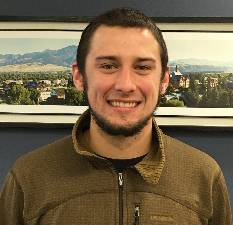
Christopher Barbour
Chris’ dissertation involves developing statistical methodology to construct clinical endpoints with increased sensitivity to detect slight changes in disease severity in longitudinal data, motivated by collaboration with Dr. Mark Greenwood from Montana State University and Dr. Bibiana Bielekova at the National Institute of Neurological Disorders and Stroke, who are interested in creating a better clinical endpoint for Multiple Sclerosis (MS) patients. The development of a better outcome scale for patients with MS is important because testing efficacy of treatments in progressive MS using the current scale utilized by the FDA (Expanded Disability Status Scale, EDSS) requires hundreds of patients being followed for 2-3 years, creating a bottleneck for testing efficacy of progressive MS drugs. Through the Gary G. Sackett Fellowship, Chris finalized a dissertation proposal, which he defended and passed on September 18th, 2017.
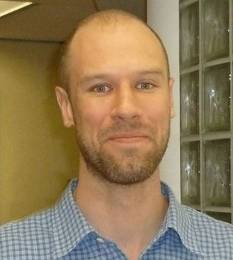
Anthony Guassoin
Tony’s researching pairwise particle interactions that result in spherical self-assembly. Examples of which include bacterial colonies, micelles, vesicles, viral capsids and patchy particles. Recent work by James von Brecht and David Uminsky (2016) investigated the role anisotropy, or directional dependence, plays in these interactions. His research is a continuation of their results and an exploration of patterned equilibrium states. Summer of 2018, he was awarded the Gary G. Sackett Fellowship. The support of the fellowship allowed me to make significant progress in his PhD dissertation draft, which he plan to defend later this term. I'd like to thank Dr. Sackett for his contribution.
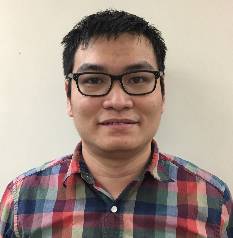
Tan Tran
The summer fellowship in 2018 allowed Tan for his continued work on his Ph.D. dissertation, which consists of creating new methodology in researching constrained monothetic clustering. An application of the method to the Arctic ice extent area functional data to detect underlying ice structure over the years and the evaluation of the method with a simulation study was also done during that time. Together, they shaped two chapters in his dissertation and got him ready for the proposal defense at the end of that year. The fellowship also allowed Tan the opportunity to present his research at the Joint Statistical Meeting, an annual largest gathering of statisticians worldwide, in Baltimore, MD. At the conference, he presented a SPEED poster format and had the opportunity to receive helpful feedback to improve his research as well as socialize and extend his professional network.
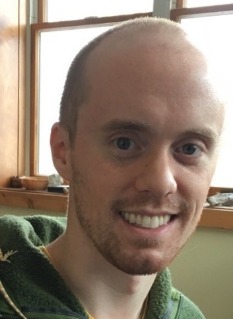
Adam Wilander
Adam Wilander's research concentrates on understanding collective behavior in biological and social systems. His work on social systems specifically aims to understand how underlying social networks influence observed opinion dynamics between communities. Adam then used this to develop an algorithm to extract the underlying community structure from repeated observations of bulk dynamics. Adam's research in biological systems explored synchronization and desynchronization in varied phenomena such as metabolic oscillations and cell behaviors. He explored how feedback in these systems changed the possible accessible stable states in these systems. Adam completed his dissertation which he defended in fall 2018.
2018 Travel Recipients
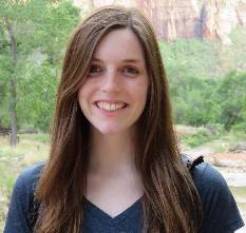
Robin Belton
Robin's research interests lie within the field of Topological Data Analysis - understanding the geometric and topological properties of data sets. With the help of the Gary G. Sackett Travel Grant, she was able to attend the Spring School and Conference in Applied and Computational Algebraic Topology at the Hausdorff Institute for Mathematics (HIM) in Bonn, Germany. During that two week period, Robin was able to meet experts within the field, meet other graduate students from the US and Europe, and gain exposure to several different subfields within Applied Algebraic Topology.
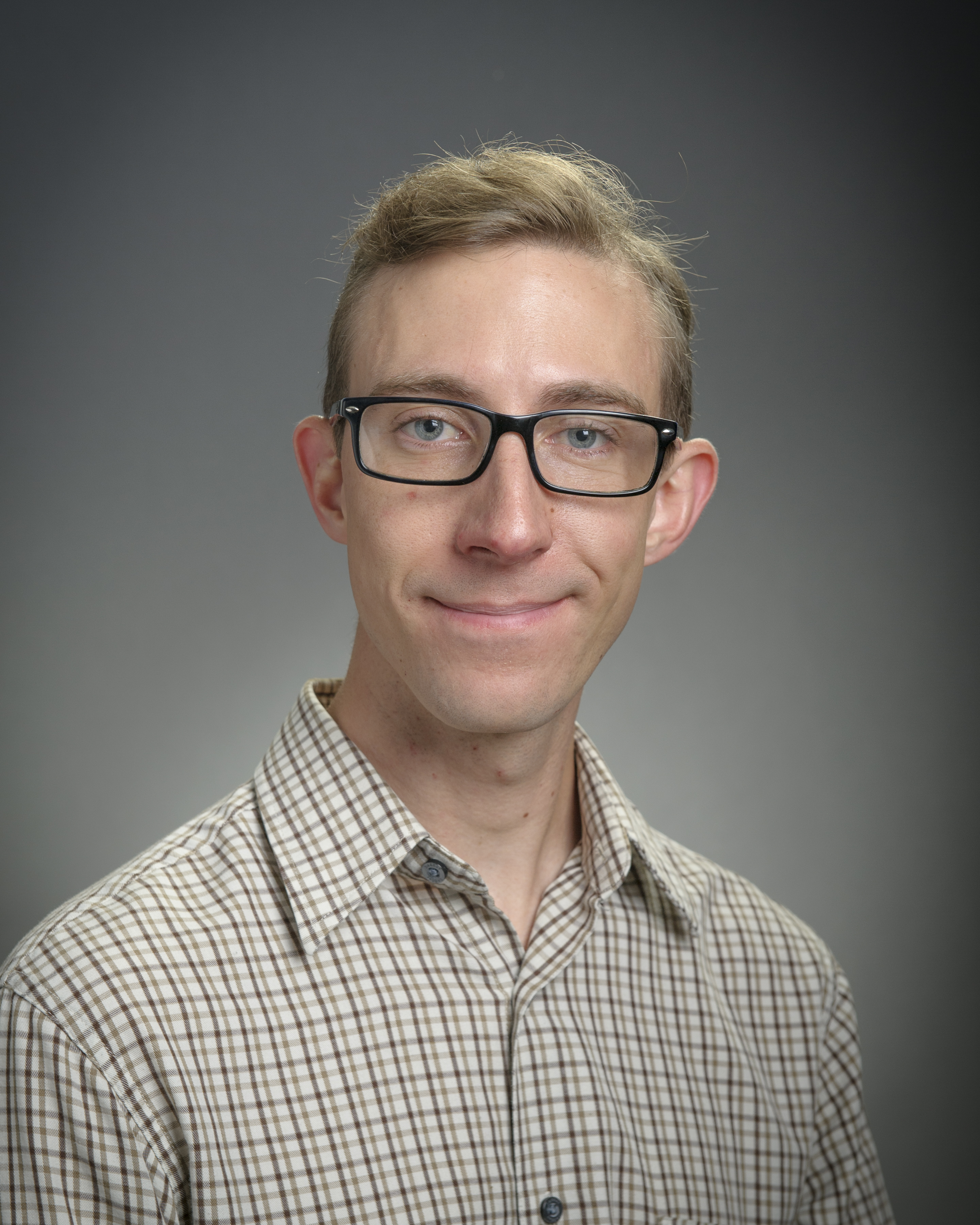
Kenneth Flagg
Kenneth Flagg (Kenny) is a fifth-year graduate student studying Statistics at Montana State University, Bozeman. Recognized by his department as an Outstanding Graduate Student for the 2017-2018 academic year, Kenny is a well-rounded statistician and a productive researcher. Kenny has served as a statistician on projects in a variety of application areas including clinical and translational research, mental health, ecology, and environmental risk assessments. These experiences have led to an interest in using statistics to promote healthy relationships between humans and their surrounding environment. He looks forward to a career developing methodologies with the potential to improve decision-making in these areas. Through the Gary G. Sackett Award, Kenny was able to travel to the 2018 Joint Statistical Meeting in Vancouver, BC, to give a talk on his research in statistical models for unexploded ordnance remediation.

Eli Meyer
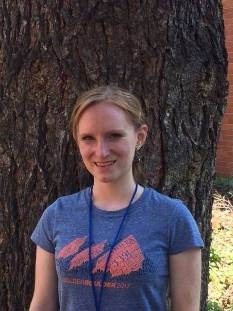
Anna Schenfisch
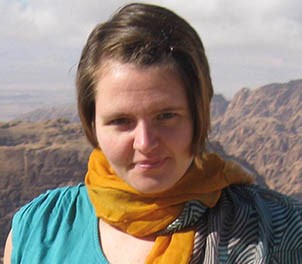
Diana Schepens
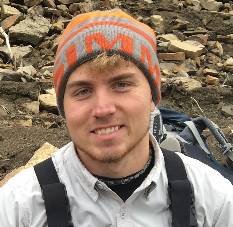
Christian Stratton
Christian's research interests lie within the field of computational Bayesian methods for multivariate non-normal data types. With the help of the Gary G. Sackett Travel Grant, he was able to attend the Joint Statistical Meeting and the Cascadia Symposium on Statistics in Sports, both held in Vancouver, Canada. During that experience, Christian was able to present some of his work, collaborate with other like-minded statisticians, and was exposed new methods to further his research. He would like to thank Dr. Sackett for making that experience possible through his generous contribution.
Rachel Ulrich
As a research assistant in the Spatial Sciences Lab for the last three years Rachel has gained an interest in remote sensing, GIS and spatial statistics. This has complemented her personal interests in environmentalism and sustainability to form her research interests. She was able to use the Gary G. Sackett Travel Award to attend the Society for Industrial and Applied Mathematics Conference on the Mathematics of Planet Earth in Pittsburgh, PA in the fall of 2018 where she presented work on developing a spectral response for typologies of low-density land use specific to the mountain Northwest region.
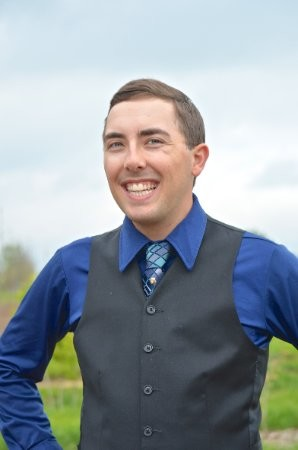
Paul Wilson-Harmon
Paul is a fourth-year PhD student in Statistics at Montana State. As a research assistant with the Office of Planning and Analysis in partnership with the Department of Mathematical Sciences, he primarily is interested in development of latent scales related to university research productivity. In particular, Paul has worked on developing better, data-driven methods for classification of similar groups of doctoral-granting universities. Using funding from the Gary G. Sackett Award, he was able to travel to Vancouver, B.C. to attend the Joint Statistical Meetings. At JSM, he was able to meet statisticians working in similar research areas and present his research on a new system of university classifications based on model-based clustering of latent factors of research productivity generated by structural equation models.
2017 Scholarship Recipients

Christopher Barbour
Chris’ dissertation involves developing statistical methodology to construct clinical endpoints with increased sensitivity to detect slight changes in disease severity in longitudinal data, motivated by collaboration with Dr. Mark Greenwood from Montana State University and Dr. Bibiana Bielekova at the National Institute of Neurological Disorders and Stroke, who are interested in creating a better clinical endpoint for Multiple Sclerosis (MS) patients. The development of a better outcome scale for patients with MS is important because testing efficacy of treatments in progressive MS using the current scale utilized by the FDA (Expanded Disability Status Scale, EDSS) requires hundreds of patients being followed for 2-3 years, creating a bottleneck for testing efficacy of progressive MS drugs. Through the Gary G. Sackett Fellowship, Chris finalized a dissertation proposal, which he defended and passed on September 18th, 2017.

Anthony Guassoin
Currently, Anthony is researching pairwise particle interactions. More specifically, interactions that result in spherical self-assembly. Examples of which include bacterial colonies, micelles, vesicles, viral capsids and patchy particles. Recent work by James von Brecht and David Uminsky (2016) investigated the role anisotropy, or directional dependence, plays in these interactions. Anthony's research is a continuation of von Brecht's and Uminsky's results and an exploration of patterned equilibrium states.

Diana Schepens
Diana is currently studying population dynamics of microbial consortia and the conditions under which cooperative behavior and specialization emerge. Parameters, such as a cell's transport rate of metabolites, are investigate to explore parameter regions where cooperating microbes and coexistence of different phenotypes outcompete other microbes. In addition, a cell's cost of producing metabolites is incorporated into the model and the influence of that cost on dynamic behavior is studied. The Gary G. Sackett Fellowship allowed Diana to make significant progress this summer towards finishing her dissertation in this topic.

Tan Tran
The summer fellowship allowed Tan opportunity to prepare his research to present at the Joint Statistical Meeting 2017 in Baltimore, MD. The fellowship also allowed for his continued work on his PhD dissertation, which consists of creating new methodology in researching constrained monothetic clustering.

Adam Wilander
2017 Travel Recipients

Chris Barbour
Chris used the Gary G. Sackett Travel Grant to attend the Joint Statistical Meetings in Baltimore, MD from July 29th through August 3rd, 2017. This is the largest annual gathering of statisticians and data scientists in North America. Chris presented his research on methodological developments in clinical endpoint construction and attended many presentations on statistical learning methods for analyzing high-dimensional gene expression data. He also met with researchers developing similar methodology and with collaborators at the National Institute of Neurological Disorders and Stroke.

Robin Belton
Robin's research interests lie within the field of Topological Data Analysis - understanding the geometric and topological properties of data sets. With the help of the Gary G. Sackett Travel Grant, she was able to attend the Spring School and Conference in Applied and Computational Algebraic Topology at the Hausdorff Institute for Mathematics (HIM) in Bonn, Germany. During that two week period, Robin was able to meet experts within the field, meet other graduate students from the US and Europe, and gain exposure to several different subfields within Applied Algebraic Topology.
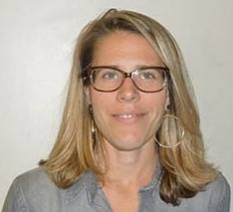
Danielle Ciesielski
Danielle is working with Dr. Tomas Gedeon and Dr. Stephanie McCalla on a DNA engineering project to understand and enhance a novel DNA test for malaria and other conditions that create unique, identifiable microRNA biomarkers. To put this project in context and learn more about the diversity of systems and synthetic biology topics, Danielle attended a week long summer school in Cambridge, England. Along with presenting her own work, she spent a week immersed with graduate researchers from around the world, learning about the questions synthetic and systems biology topics are being used to address, from the micro field of DNA engineering to macro issues of climate change and environmental clean up. Exploring the exciting issues of these dynamic fields encouraged Danielle to explore how mathematical modeling methods can strengthen the reach of the innovative ideas.

Tan Tran
Tan attended the Joint Statistical Meeting 2017 in Baltimore, MD this past summer. The meeting was the largest gathering of statisticians in the world. Tan attended various talks on diverse topics, as well as met many scholarls having similar research interests. Tan's original research on constrained monothetic clustering was presented orally and in a poster session, which generated valuable ideas for his future research.
2016 Scholarship Recipients
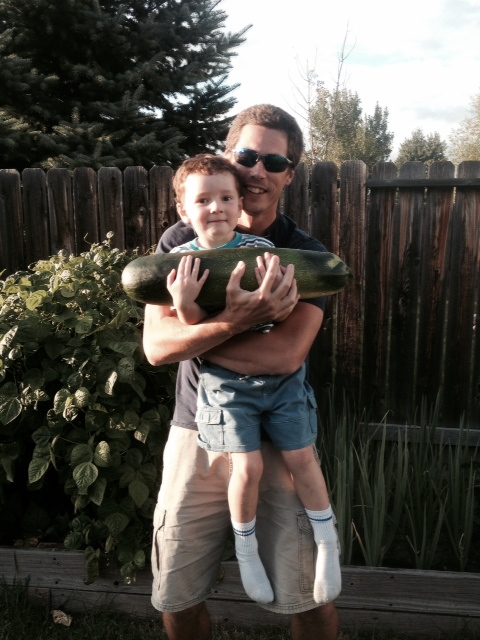
Dan Kanewske
In his research, Dan has developed a novel visco-elastic fluid flow model which captures the flow of a viscous fluid flowing over a visco-elastic fluid. The purpose of the model is to describe the resulting elastic stress in the visco-elastic fluid. The motivation is to better understand and analyze the common growth of bacterial colonies inside of industrial pipes, catheters etc. He is working under the direction of Dr. Tianyu Zhang.

Nate McClanahan
Nate's research examines mathematical models of biofilm growth and movement mechanisms. Biofilms are attached microbial communities made up of many different components, and they are found throughout nature as well as in industrial and medical settings. Understanding how these biofilms spread is important in helping the prevention and treatment of diseases and to prevent contamination. Under the direction of Dr. Tianyu Zhang, he studies a model that is designed to model the mixing and separating that occurs within a biofilm. The starting point was the Flory- Huggins free energy density and the Cahn-Hilliard Equation. The model balances the energy terms describing the mixing of molecules, the interaction between molecules, and an energy due to sharp changes in composition. Nate's work also introduces a new term into the energy model that allows the components of the biofilm to move around within the biofilm. This term addresses the movement energy and gives preference to certain locations within the domain for where the biofilm should be in order to minimize the energy. In some cases it acts as an attachment term giving preference to the entire biofilm being at the bottom of the domain - simulating a biofilm attached to a wall or bottom of a stream. Numerical implementations in one and two space dimensions using a finite difference method in C++ are used to explore various aspects of the model.
2016 Travel Award Recipients
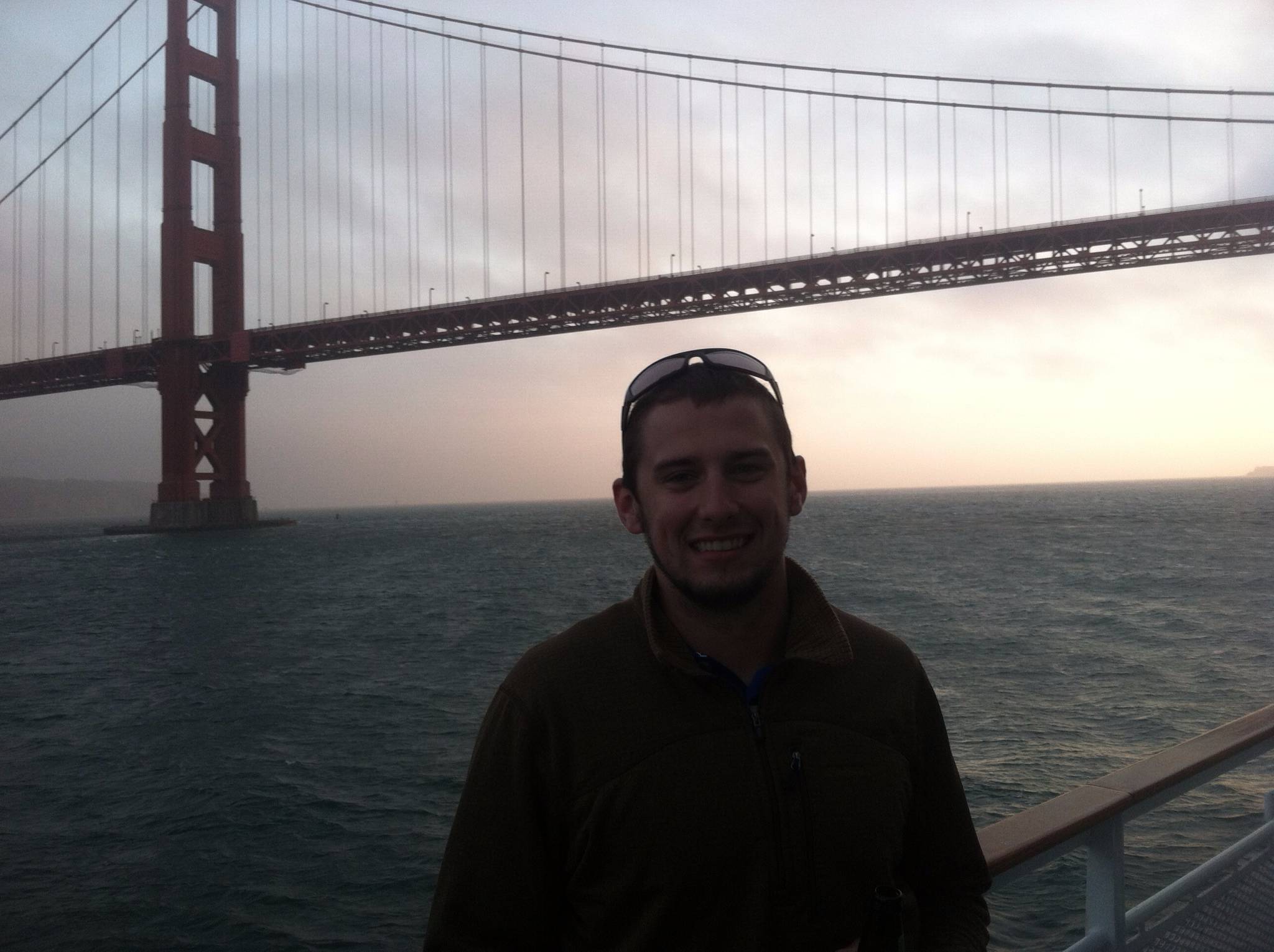
Chris Barbour
Chris will use the money provided through Gary Sackett to attend the University of Washington Summer Institute in Statistics for Big Data. The Institute consists of 5 two-and-a-half-day short courses (modules) covering various aspects of the collection, preprocessing, analysis, and interpretation of biomedical big data. This is a subject area that combines many aspects of statistical learning, computer science, and applied mathematics. Each of the five modules are taught by 2 instructors who are leading experts in their respective fields, both at UW and from around the country. Attending will benefit his research involving high-dimensional data analysis with his adviser Dr. Mark Greenwood as well as their long term collaboration with researchers at the National Institutes of Health working involving the analysis of CSF proteins in Multiple Sclerosis patients.
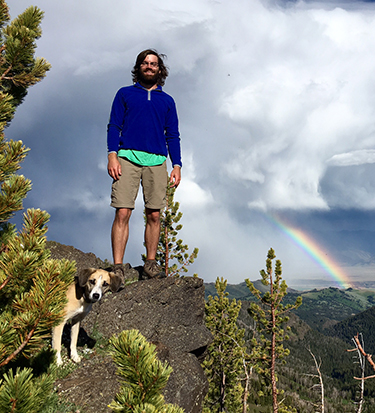
Eric Berry
Eric used the money provided to attend the Second Chicago Summer School in Geometry and Topology at the University of Chicago. The emphasis of this year's summer school was on algebraic topology, a current area of research and interest for Eric. The summer school consisted of 4 lectures a day, followed by problem sessions in the evenings to enhance comprehension. Eric currently has research projects in topological data analysis and topological methods in the study of dynamical systems.

Nathan McClanahan
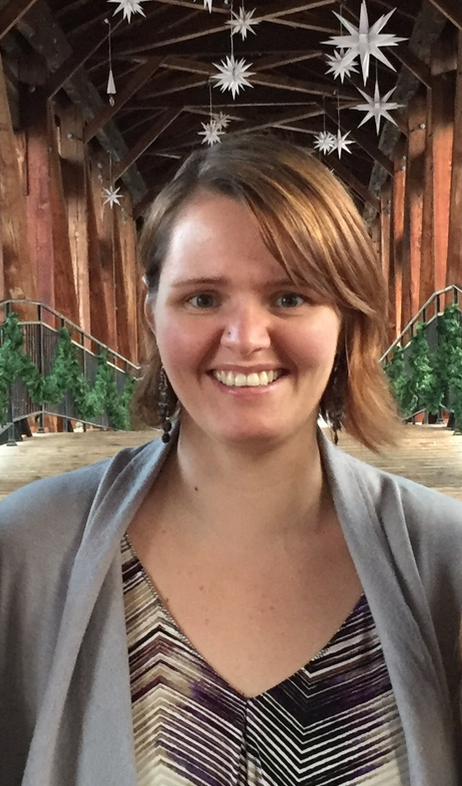
Diana Schepens
Diana attended the Séminaire de Mathématiques Supérieures in Biological Dynamics, June 2016 at the University of Alberta in Edmonton. This summer intensive included lectures and group work on methods for modeling reaction kinetics, molecular networks, pattern formation, epidemics, and populations. Diana is currently studying population dynamics of microbial consortia and the conditions under which cooperative behavior and specialization emerge.
2014-2015 Scholarship Recipients
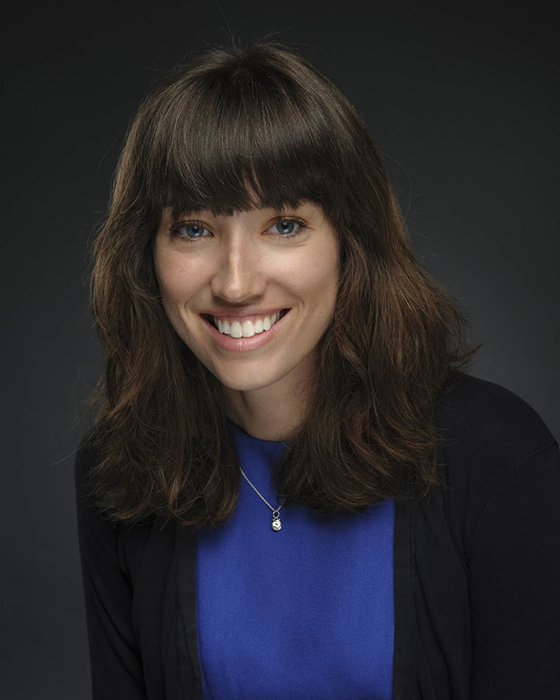
Tamra Heberling
Tamra's research focuses on constructing stochastic models describing transcription of DNA by RNA polymerases while incorporating new breakthroughs found in single-molecule experiments. One of the results of these experiments is that the torsional forces applied to a DNA strand by an RNA polymerase during transcription can be measured and connected with transcriptional velocity. In a paper published in Science in 2013, experimentalists were able to measure the torque and its relationship to both transcriptional pausing and velocity. Using these results to incorporate torque into a basic stochastic model, her numerical simulation results agree well with transcription times observed experimentally and reported within the literature. After finishing her PhD in May of 2016, Tamra joined Los Alamos National Laboratory as a postdoctoral fellow.
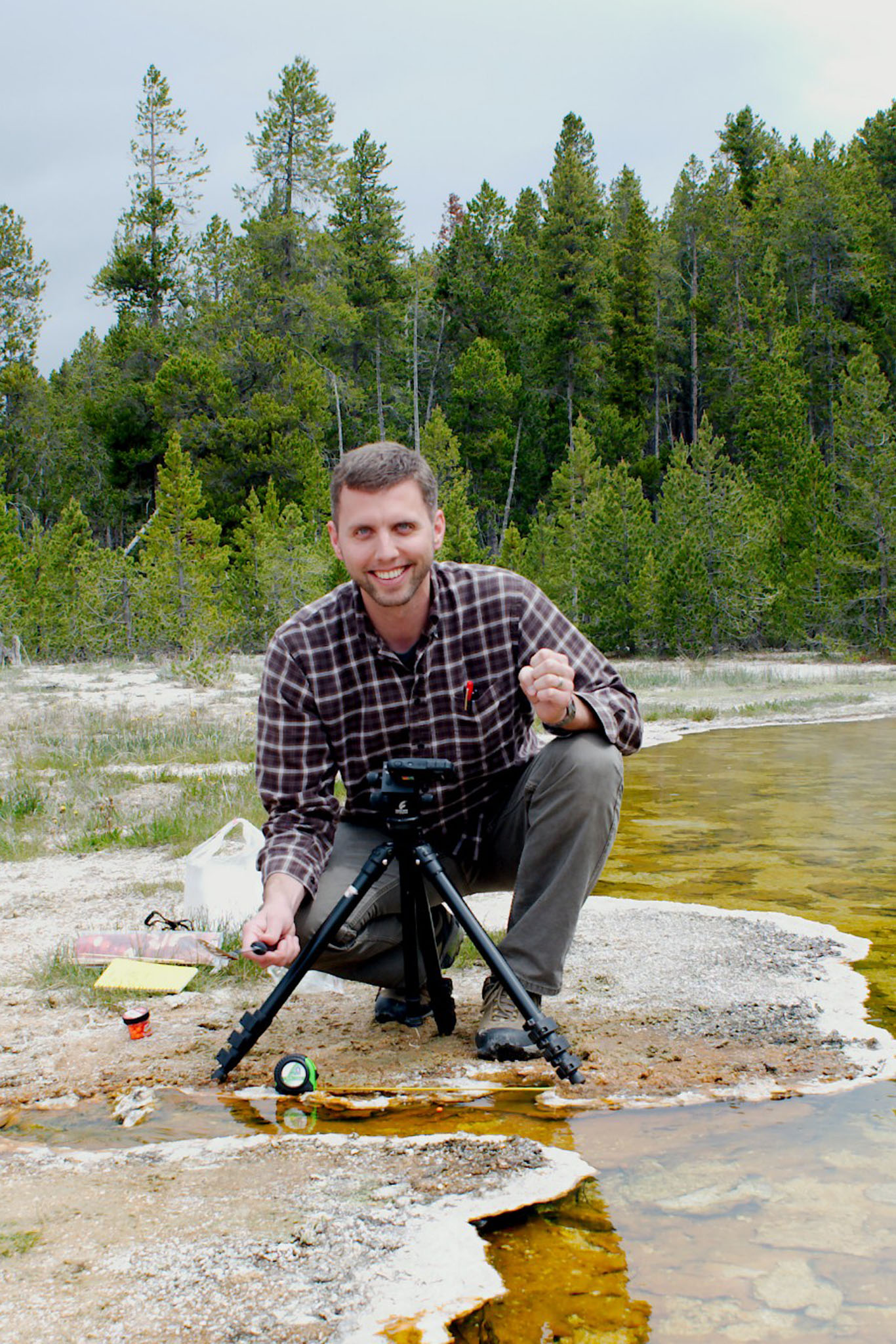
Ben Jackson
Ben's research is highly interdisciplinary, and his dissertation work involved two projects developing and parameterizing two flow channel models in collaboration with experimenters in the department of Land Resources and Environmental Sciences as well as MSU’s Center for Biofilm Engineering (CBE). The first model, which used data Ben and others collected at Mushroom Spring in Yellowstone National Park, estimated erosion and adhesion rates of cells settling in the flow of one of the spring's effluent channels. The second model, a work in collaboration with the CBE, used a Markov Chain Monte Carlo (MCMC) method to estimate parameters in a biomineralization application.
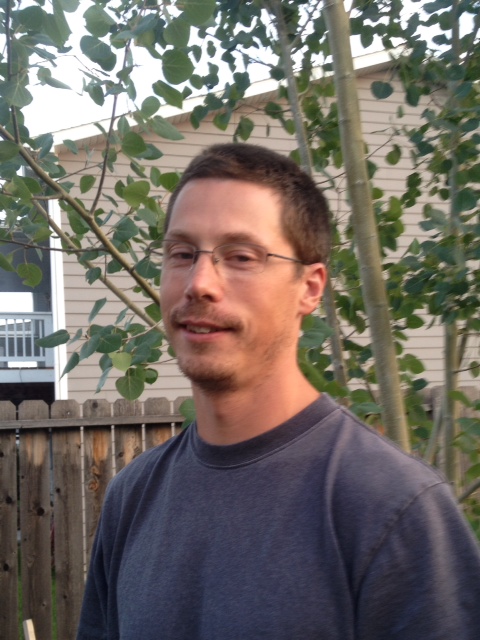
Dan Kanewkske
Dan's research area is applied mathematics with an emphasis in computational fluid dynamics and a specific application to the viscoelastic flow of a biofilm. Working under the direction of Dr. Tianyu Zhang, he is using a novel model to capture viscoelastic biofilm behavior for the purpose of predicting mechanical stresses on the inside of a biofilm. Should such stresses exceed a biofilm dependent attachment threshold, detachment can be predicted. Subsequently, scouring information could be generated to facilitate biofilm volume reductions along the inside of a contaminated pipe.
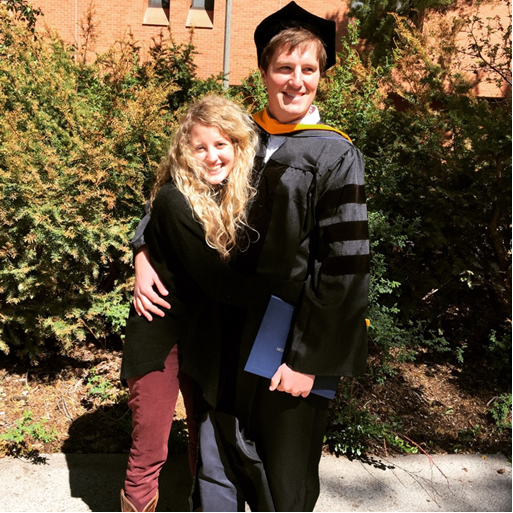
Ryan Waters
Ryan plans to enter the medical field combining his interests in mathematical biology and immunology. His research includes several projects studying diverse biological systems with a variety of mathematical and statistics tools. In particular, these projects include exploring the role of cytokines in immune response regulation, looking at hepatocyte lineages and regeneration from stem cells, understanding the kinetics of co-encapsulated enzymes, and analyzing the CRISPR adaptive immune system in bacteria. As a part of these projects, Ryan has participated in a variety of collaborations with biochemist, biologist, and immunologist, even starting a collaboration with a friend and colleague studying biochemistry at the University of Indiana. This collaboration has lead to a publication exploring the function of enzymes when they are confined in viral cages both individually and in tandem (forming a molecular pathway).
2014-2015 Travel Award Recipients
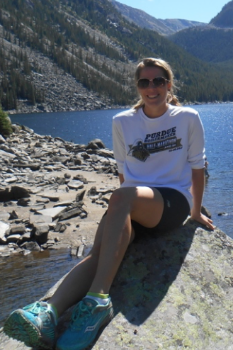
Danielle Ciesielski
Danielle attended the Atlantic Association for Research in the Mathematical Sciences and Pacific Institute for the Mathematical Sciences Summer School in Differential Equations and Numerical Analysis at Dalhousie University in Halifax, Nova Scotia, Canada. Of the four courses offered, she took courses on waves and patterns in nonlinear systems and numerical analysis of singularly perturbed problems with a group of 40 other students.
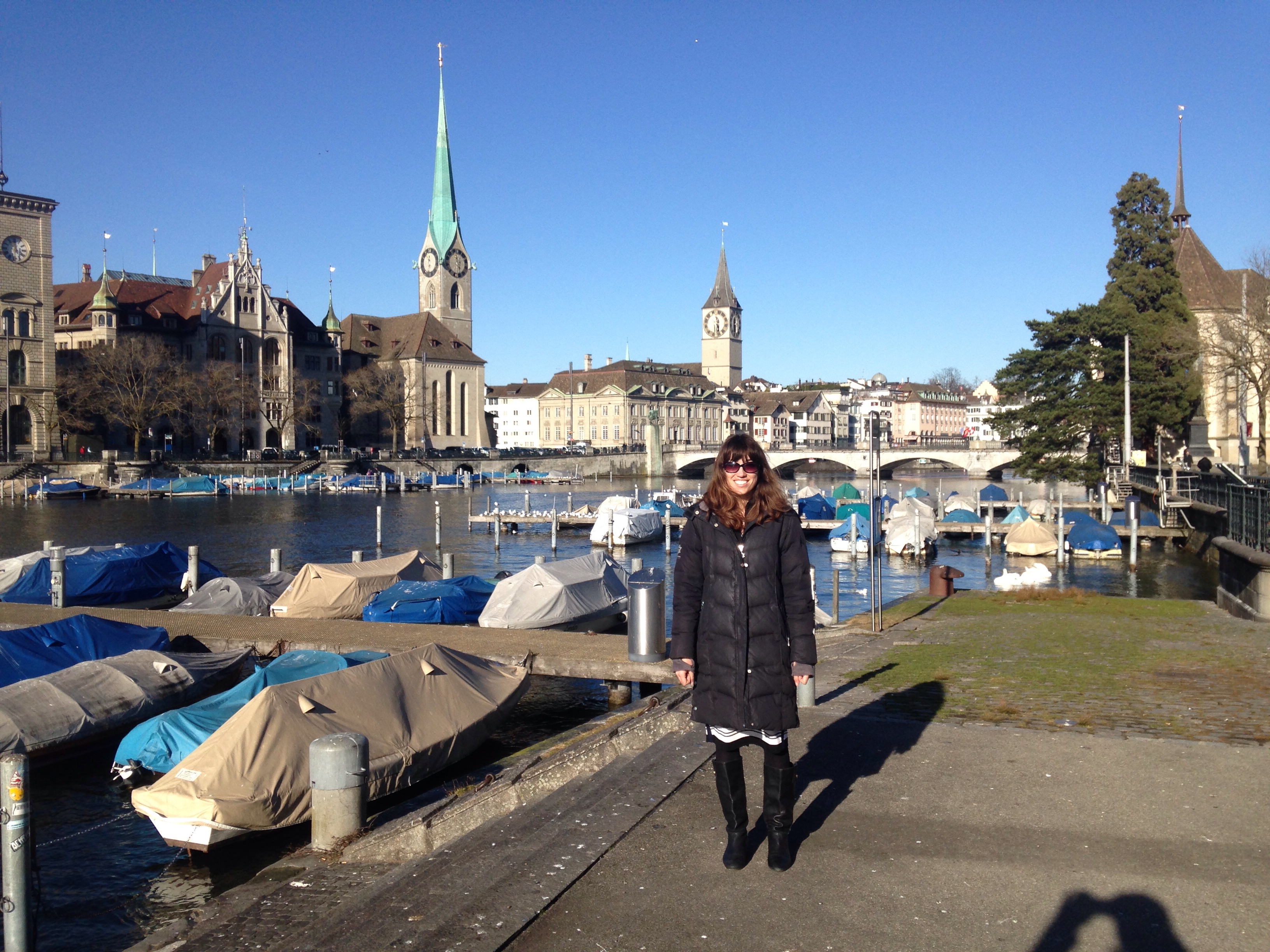
Tamra Heberling
Tamra presented her research on Torque on Transcription at the XIII International Conference on Systems Biology in Zurich, Switzerland. Her presentation was titled “You Spin Me Round: A Mathematical Discussion of Torque on Transcription.” She was also invited to be the session chair for the conference. Tamra’s research focuses on modeling stochastically the transcription of DNA by RNA polymerases while incorporating new breakthroughs found in single-molecule experiments.
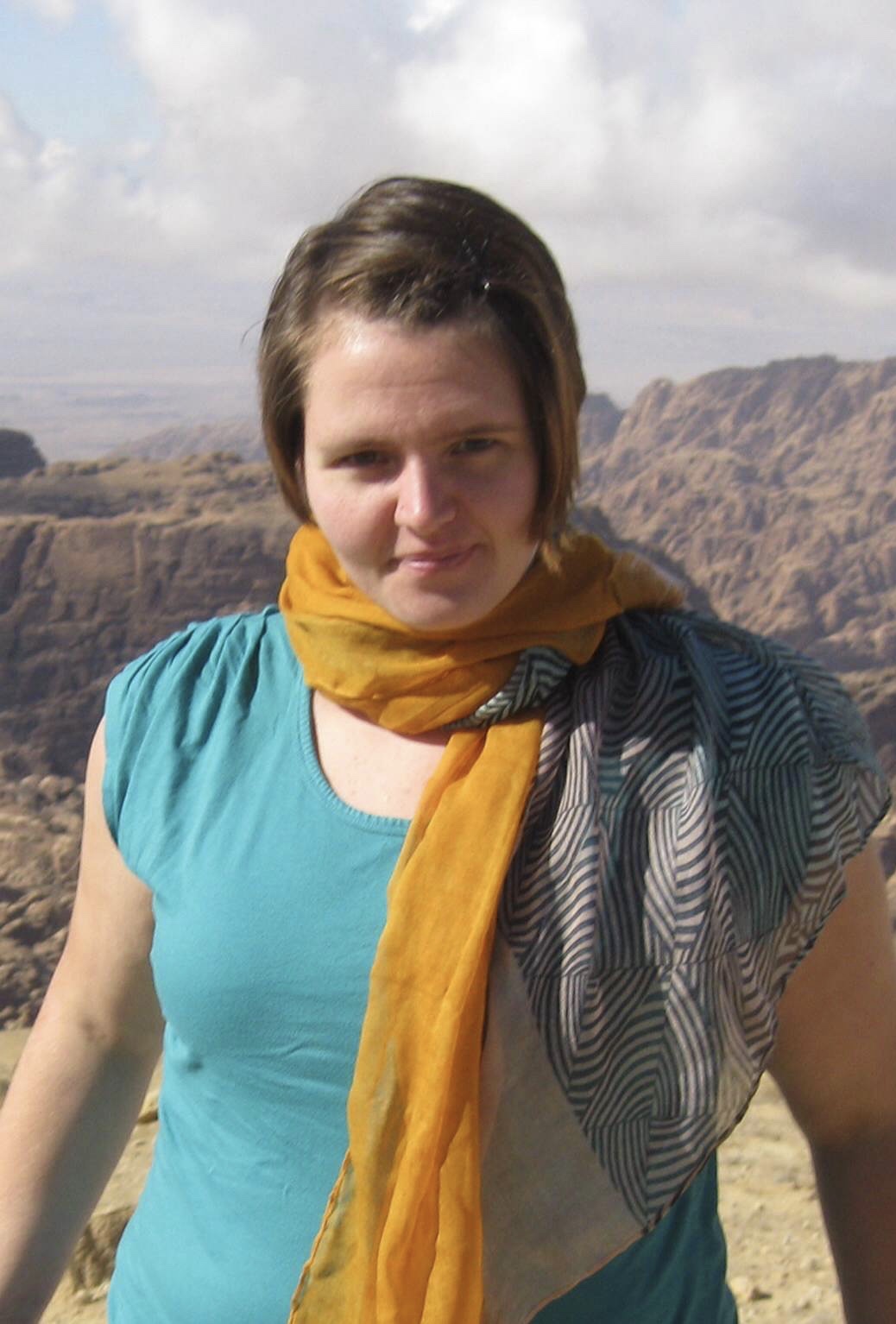
Diana Schepens
Diana attended the Joint 2015 CAMBAM-MBI-NIMBioS Summer School at Mcgill University in Montreal, Canada, and had the opportunity to work with a small group using XXPAUT to investigate and present the bifurcation diagram of the Hodgkin-Huxley equations.
Diana’s current research is with Dr. Tomas Gedeon and a group from the Chemical and Biological Engineering department to model microbiome communities. In her research, the metabolic pathways of E. Coli bacteria are modeled using a deterministic model and reaction kinetics. They are then looked at in the context of bacterial communities where the modeled bacteria adapt to being able to work together to maximize the growth of the community. Many of the computational and mathematical tools discussed during the summer school have been helpful in the development and analysis of this model.
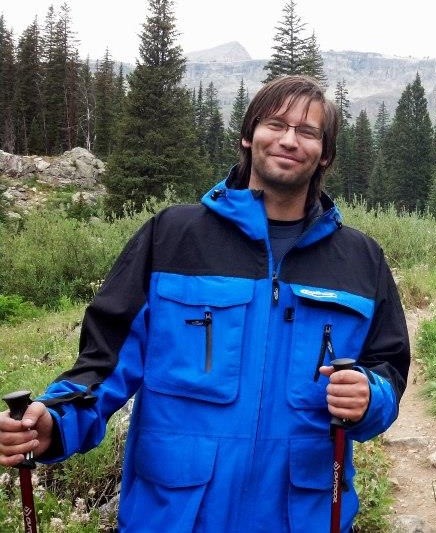
Michael Broome
Michael attended Dalhousie University in Halifax, Nova Scotia to take a course in Reaction-Diffusion Systems to help better understand his research on improving mathematical models of biofilm growth, as well as the numerical simulations of these models.
